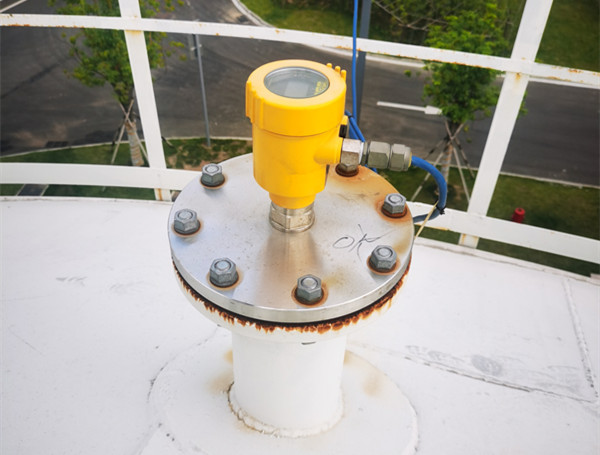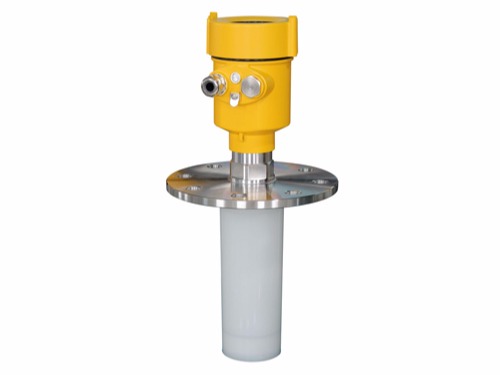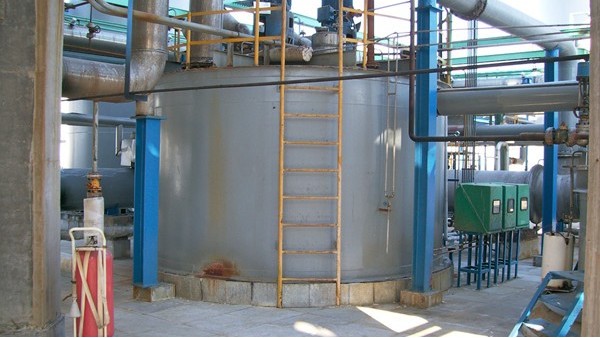We often say that radar level meters can be used in different degrees of complex working conditions, such as with stirring, foam, and steam sites, of course, crystallization condensation is also considered one of the more special working conditions.
In order to make the radar level meter in complex working conditions to play its 100% measurement level, the selection of this very important link, today we through our actual case to give you an analysis of the crystallization condensation site and how to choose the radar level meter.

Benzene is a colorless, sweet-smelling transparent liquid at room temperature, with a density less than water and a strong aromatic odor. The boiling point of benzene is 80.1℃ and the melting point is 5.5℃. Benzene is less dense than water, with a density of 0.88g/cm3, but its molecular weight is heavier than water.
Benzene is slightly soluble in water, but benzene is a good organic solvent, the ability to dissolve organic molecules and some non-polar inorganic molecules is very strong, except for glycerol, glycol and other polyols can be miscible with most organic solvents, except for iodine and sulfur slightly soluble, inorganic substances in benzene insoluble. Users need a radar level meter that can measure the level of benzene tanks. The models used in the past often have a sudden and rapid rise in level and stop after exceeding the range. The parameters were adjusted according to the manual and empty tank testing was performed, but there was still no solution.
So the user turned to us for help, and our engineers learned after a detailed understanding that the previous radar level meter could not be detected properly in use, mainly because the antenna itself was hung with the medium. Due to the chemical nature of benzene, it will crystallize and volatilize easily in an environment below 6 degrees Celsius. In the production process, in order to prevent benzene from freezing in winter, the storage tank is heated with additional circulating steam, resulting in benzene still volatilizing in the storage tank in winter.
However, the radar level meter was not insulated or heated and was installed on the top nozzle, resulting in the temperature of the meter being much lower than the temperature inside the storage tank. Thus, in winter when the temperature is low, the benzene vapor encounters the radar level meter, and the antenna will eventually freeze due to condensation, affecting the use of the radar level meter.

The customer’s initial solution was to remove the meter, clean the antenna, and seal the horn mouth with a plastic sheet and transparent adhesive to reduce the crystallization at the antenna, but frequent maintenance increased the cost, did not solve the fundamental problem, and reduced the maintenance of the frequency.
The customer wanted to solve the problem from the root, so he turned to us. For this special situation, our engineer gave a solution and recommended our RD902T high-frequency radar level meter, which is independently developed and produced by our company. Its antenna is further optimized and the new fast microprocessor can perform higher-speed signal analysis and processing so that the instrument can be used in some complex measurement conditions such as reactors and liquid tanks.
Due to the adequate protection measures taken by this product, it has a better measurement effect, especially for corrosive liquid, steam, and volatile liquid, low-temperature resistance, self-heating, non-freezing, and anti-crystallization. After the user responded to replace it with an RD902T high-frequency radar level meter, the field measurement effect is good, and the original problem does not exist.

In fact, the above-mentioned similar problems are not a few, many users in the use of radar level meter measurement process after the emergence of such problems, do not promptly turn to professionals, they continue to try various methods to improve debugging, but the final effect is poor.
No matter what kind of problems we encounter, we can turn to professionals and let them help to judge and solve them, which can largely save costs, reduce losses and solve problems.
